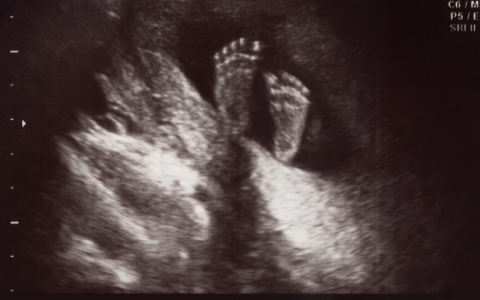Can You Get Pregnant with Premature Ovarian Failure? Watch out for these 7 Symptoms, and Learn About the Causes and Treatment Early
What should be done for Premature Ovarian Failure(POF)? Can you still get pregnant? For women with family planning on their minds, POF is undoubtedly bad news. But why does POF occur, and how can it be treated? In this article, we'll explain the causes, symptoms, and treatment options of POF to help you gain a deeper understanding and find solutions.

What Is Premature Ovarian Failure?
Premature Ovarian Failure refers to the early decline in ovarian function. When the ovaries stop functioning prematurely, it can lead to female infertility, and in some cases, necessitate assisted reproductive technologies such as IVF due to the lack of viable eggs. In normal circumstances, ovarian function gradually ceases around the age of 45, leading to menopause. However, in cases of POF, the ovaries may stop producing eggs as early as in one's 30s.
How to Check for Premature Ovarian Failure? Understanding the AMH Test
If you want to determine whether you have POF, a blood test measuring Anti-Müllerian Hormone (AMH), which represents a woman's ovarian reserve, can be performed. This test helps assess the normalcy of your reproductive potential. A normal AMH level should fall between 2 and 5. If it's less than 2, it may indicate POF, and you may be advised to consider early childbirth or freezing your eggs to preserve your fertility. Ovarian-related infertility accounts for about 15% to 25% of infertility cases, with POF being one of the leading causes.
|
AMH levels (high or low) |
Meanings |
|
>5 |
Polycystic Ovary Syndrome (PCOS) |
|
2~5 |
Normal |
|
<2 |
Premature Ovarian Failure(POF) |
But having a low egg count does not necessarily mean poor egg quality. If a patient with premature ovarian failure has a low egg count but good quality eggs, a healthy uterus and body condition, and is not of advanced age, they can still achieve a successful pregnancy through in vitro fertilization (IVF) treatment. In addition to AMH, if the test also reveals a high level of follicle-stimulating hormone (FSH), it indicates poor ovarian reserve function and a very high likelihood of having premature ovarian failure.
Analyzing the Causes of Premature Ovarian Failure and High-Risk Groups
However, why does premature ovarian failure occur? Some cases are due to congenital family history, while others result from external factors. The common causes include the following six:

1.Family Medical History
If you discover that female relatives have previously suffered from premature ovarian failure, your own risk of experiencing this condition may also be elevated. It is recommended to undergo regular check-ups to have the chance to detect early signs and prevent premature ovarian failure.
2.Previous Ovarian-Related Diseases and Surgeries
Women who have undergone ovarian surgeries are more susceptible to developing premature ovarian failure. If you've experienced ovarian-related health issues and had parts of your ovaries removed, it can lead to diminished ovarian function and ultimately result in premature ovarian failure.
3.Psychological Stress
Excessive psychological stress can lead women to experience menopausal symptoms prematurely, which can in turn trigger premature ovarian failure.
4.Genetic Inheritance
Individuals with Turner syndrome and X-chromosomal fragility syndromes are more prone to developing premature ovarian failure.
5.Unhealthy Habits
Habits such as smoking, irregular daily routines, lack of physical activity, and extreme weight loss can all contribute to the onset of premature ovarian failure.
6.Autoimmune Factors
If the body's own immune cells attack ovarian tissue, it can temporarily impair ovarian function, leading to premature ovarian failure. However, the exact reasons for immune cell attacks on ovarian tissue and effective solutions remain unknown. Therefore, it is advisable that individuals with such conditions, who have plans for fertility, consider egg freezing as a preparation.
For further reading: Egg Freezing in Singapore (2023): How Does it Work, Process, Cost - RSMC Singapore
7 Common Symptoms of Premature Ovarian Failure
The symptoms of premature ovarian failure (POF) are similar to those of menopause, and common signs include:
1. Irregular menstrual cycles
2. Scanty menstrual flow
3. Decreased libido
4. Frequent menstrual delays
5. Insomnia
6. Amenorrhea (absence of menstruation)
7. Vaginal dryness
Apart from POF, there are several gynecological conditions that can lead to infertility. It is advisable for everyone to monitor their physical condition and undergo regular check-ups. For those with fertility plans, regular assessment of Anti-Müllerian Hormone (AMH) levels can help detect signs of premature ovarian failure early.
How Is Premature Ovarian Failure Treated? 3 Methods for a Better Chance of Pregnancy
So, how can premature ovarian failure be treated? Typically, there are three methods:

1. Hormone Therapy:
By supplementing the right hormones, ovarian function can be normalized and improved.
2. Lifestyle Changes:
Inadequate sleep can disrupt hormonal balance, so it's recommended to reduce late nights and ensure sufficient sleep to alleviate premature ovarian failure symptoms.
3. Egg Donation for IVF:
While hormonal therapy and lifestyle adjustments can help manage POF, women with very few remaining basic ovarian follicles may have reduced chances of natural conception. If basic ovarian follicles are still present, stimulation with ovulation-inducing drugs can stimulate growth, development, and maturation of follicles, providing an opportunity to retrieve healthy eggs. However, if ovulation induction is unsuccessful, or if basic ovarian follicles are absent, egg donation through IVF may be the only option for conceiving. As long as the body and uterus are in good health, premature ovarian failure does not hinder the pregnancy process.
Whether you are considering self-egg IVF or using donated eggs for IVF (self-conception), it is recommended to proceed at a younger age. Ovarian function and overall bodily functions gradually decline with age, leading to a decrease in the success rates of IVF treatments. In cases of premature ovarian failure resulting in a reduced egg count, there have been instances where a woman had to undergo multiple egg retrieval procedures to obtain the few eggs needed for IVF, only to find that her physical condition was no longer suitable for pregnancy. Ultimately, she had no choice but to turn to RSMC for third-party reproductive assistance through gestational surrogacy, and those precious few eggs gave birth to an adorable baby boy who reunited with his mother.
For further reading: Why do people choose egg donation for having a child?A comprehensive guide and FAQ
How to Deal with Premature Ovarian Failure? RSMC Provides New Options
As evident, even if you unfortunate suffer from premature ovarian failure, there is still a chance to achieve your dream of having a child. When you combine this with the assistance of the RSMC, they can help plan a suitable treatment for you to fulfill your desire for parenthood.

Freezing Eggs in Advance: Taking Control of Your Life Journey
For women diagnosed with premature ovarian failure, if they have a desire to have children but have not yet found a life partner or want to focus on advancing their careers, egg freezing is a proactive option. Whether you intend to marry and have children with your true love in the future or pursue Single Parent Sperm Donor IVF Treatment, RSMC is here to assist you.
Read More: Is there an Age Limit on Egg Freezing ? Two Common Questions about Egg Freezing
Egg Donation IVF: Fulfilling the Dream of Complete Parenthood
If, due to physical factors, you can no longer use your own eggs, RSMC has an extensive elite egg bank. Our egg donors undergo rigorous medical and psychological evaluations, as well as comprehensive genetic screening of over two hundred markers. The eggs are pre-frozen, eliminating the need for waiting to ensure a fast and secure selection of your ideal donor.
Read More: Why Should You Choose IVF with Donor Eggs in America ?
Gestational Surrogacy: Realize Your Dream of Parenthood
Even if your physical condition is not conducive to natural conception, the surrogate mothers at RSMC can help you welcome your baby into the world. The United States is one of the few countries where surrogacy is legally allowed, and RSMC ranks among the top three assisted reproduction management centers in North America. Every year, over 8,000 surrogate mothers are prepared to assist you in realizing your dream of becoming a parent. There is no need to wait for matching, and you can choose a compassionate surrogate mother who feels right for you. Our surrogate database is comprehensive, with candidates undergoing strict medical tests, criminal background checks, financial background investigations, and psychological assessments, resulting in a selection rate of only 4%. We maintain a strict standard to safeguard your child's future.
Read More: Everything about Surrogacy: Meaning, Surrogate, Process, Cost & More
The IVF experts at RSMC possess 30 years of extensive clinical experience and exhibit excellent pregnancy rates in advanced maternal age IVF. They have their own elite egg bank and surrogate mother bank managed by physicians, offering immediate matching without the need to wait. Married couples eager to start a family, successful single individuals, and LGBTQ+ families who cherish parenthood, please schedule a free video consultation with our US Physicians. Contact us via Line/WeChat: rsmctw; WhatsApp: +1 858-342-6046, We will have a Chinese service window to assist you.

DR. DAVID HARARI
President and Chief Medical Officer
As a board-certified OB/GYN since 1986, Dr. Harari has treated many infertile couples over his career, utilizing surgical technologies such as robotics and minimally invasive procedures for the treatment of endometriosis, fibroids, and other gynecologic conditions. He has been instrumental in helping thousands of couples build the family of their dreams through both IVF and surrogacy.
About Dr. David HarariOther
-
2025/03/13others
Can Vitiligo Be Cured With Reproductive Technology?
-
2025/02/24others
What are the reasons behind failed blastocyst culture?
-
2024/11/20others
A Must-Read for Expectant Mothers: All About Down Syndrome Screening!



